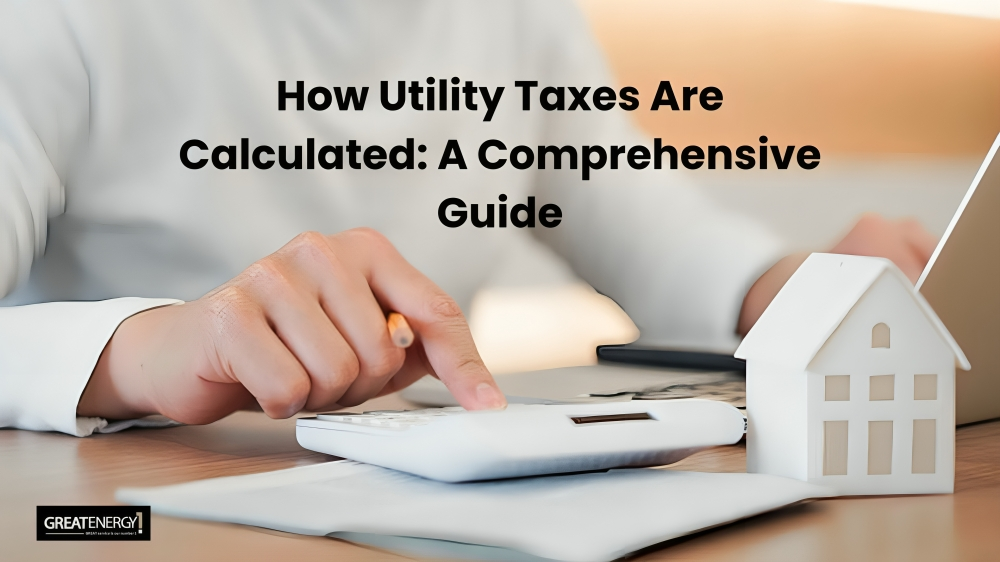Utility taxes are part of everyday life. Whether you’re paying for electricity, gas, or phone services, your bill often includes taxes. This guide helps you understand how utility taxes are calculated. Knowing the process can help you manage your expenses better and ensure you’re not paying too much. We explain everything in simple steps, so it’s easy to follow.
What Are Utility Taxes?
Utility taxes are government-imposed charges on gas and electricity, or other services. These taxes can vary depending on your location and are used to fund local infrastructure, public services, and energy initiatives. Given that utilities often represent a significant portion of household or business expenses, understanding how taxes are applied can save you money.
Types of Utility Taxes
General Utility Taxes
These are taxes applied to all utility services. They are typically calculated as a percentage of your total bill.
Excise Taxes
Excise taxes are specific to the consumption of certain utilities. For example, you may pay an excise tax on natural gas or electricity usage.
Franchise Fees
Utility companies sometimes have to pay fees to local governments for using certain areas. These fees are added to your utility bill, so you pay for them as part of your monthly charges.
Regulatory Surcharges
These charges fund public programs like renewable energy projects or infrastructure maintenance.
State and Local Taxes
Utility tax rates often depend on your location. State taxes might apply uniformly, while local taxes can vary significantly.
How Are Utility Taxes Calculated?
Calculating utility taxes may seem complex, but it’s straightforward when broken down:
Identify the Tax Base
Review your bill to see what parts are taxable—some bills separate service fees, usage charges, and equipment costs.
Apply Tax Rates
Multiply the taxable amounts by the applicable tax rates. These rates may be listed on your bill or available on local government websites.
Include Exemptions and Credits
Certain groups, like nonprofits or schools, may qualify for tax exemptions. Tax credits can also reduce the overall amount.
Related Blog:
Examples of Utility Tax Calculations
Residential Electricity Bill
Imagine your electricity bill is $100. If your state adds a 5% tax, you’ll have to pay an extra $5 in taxes, which will total $105.
Commercial Utility Bill
A business uses $1,000 worth of gas. If the local tax is 3%, the tax amount is $30. Add any other surcharges, and the total increases accordingly.
Telecommunications Tax
Your phone bill is $50, and the federal excise tax is 10%. You’ll pay $5 in taxes. Some states also add local surcharges, increasing the total tax further.
Challenges in Utility Tax Calculations
Complex Billing Structures
Utility bills can be confusing, with multiple line items and taxes listed separately. Understanding each charge is critical.
Varying Tax Rates
Different areas have different tax rates. Keeping track of these changes can be challenging, especially for businesses operating in multiple locations.
Identifying Exemptions
Not everyone qualifies for exemptions, and determining eligibility can be complicated.
Discrepancies
Errors in billing or tax calculations can occur. Reviewing your bills regularly can help catch mistakes.
How to Manage Utility Taxes Effectively
Review Your Bills
Check your utility bills each month. Make sure the taxes are calculated correctly and match local tax rates.
Stay Updated on Tax Rates
Tax rates can change due to new regulations or policies. Staying informed will help you avoid surprises.
Use Available Exemptions
If you qualify for exemptions, ensure they’re applied. For example, some nonprofit organizations don’t pay utility taxes.
Consider Professional Help
If utility taxes are a significant expense, consult a tax professional. They can identify savings opportunities and ensure compliance.
Reduce Your Usage
Lowering your utility consumption can reduce your overall tax burden. Energy-efficient appliances and water-saving devices are good investments.
Related Blog:
Importance of Utility Tax Refunds for Businesses
Conclusion
Understanding utility taxes, like general, excise, and surcharges, can help you manage your expenses better. It’s important to check your bills regularly, stay updated on tax rates, and apply for any exemptions you might qualify for. This way, you can ensure you’re not paying more than necessary. You can ensure accuracy, minimize your tax burden, and improve financial planning by staying proactive.
